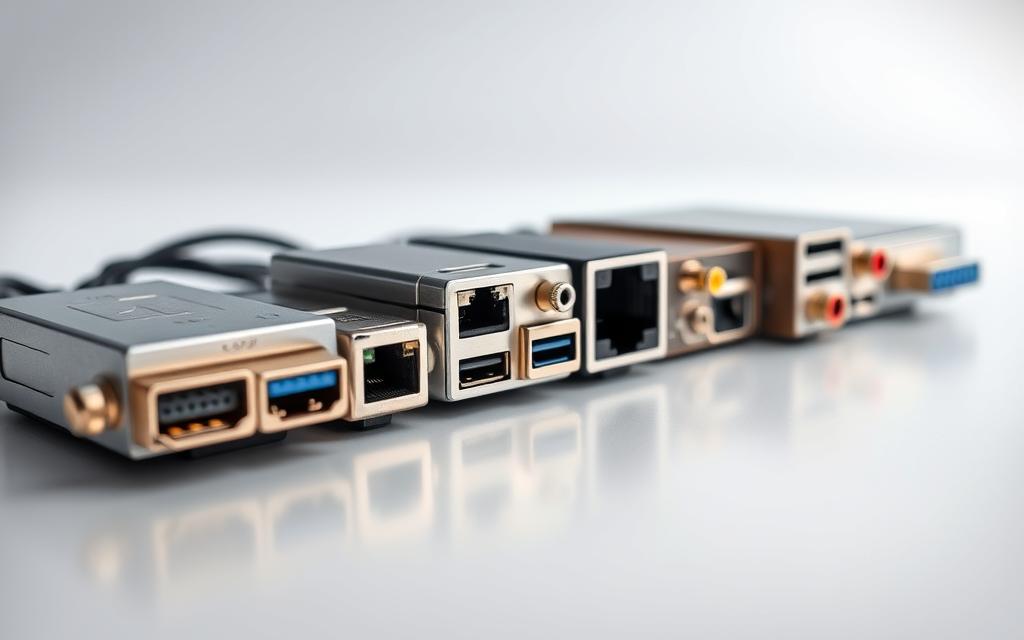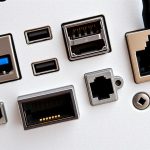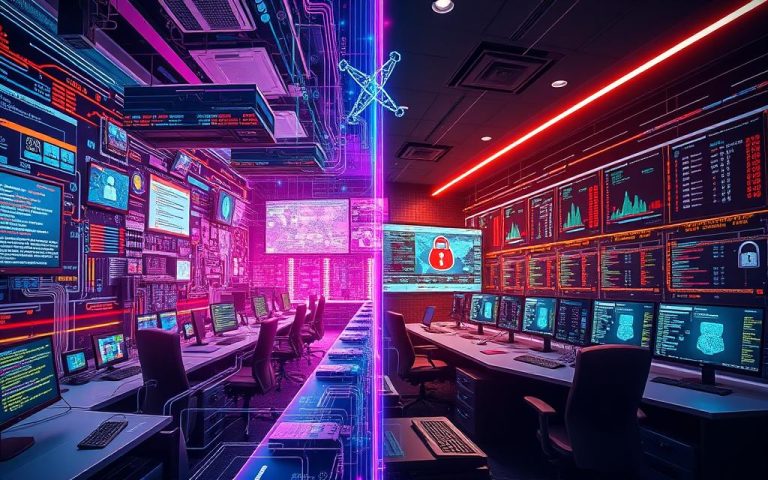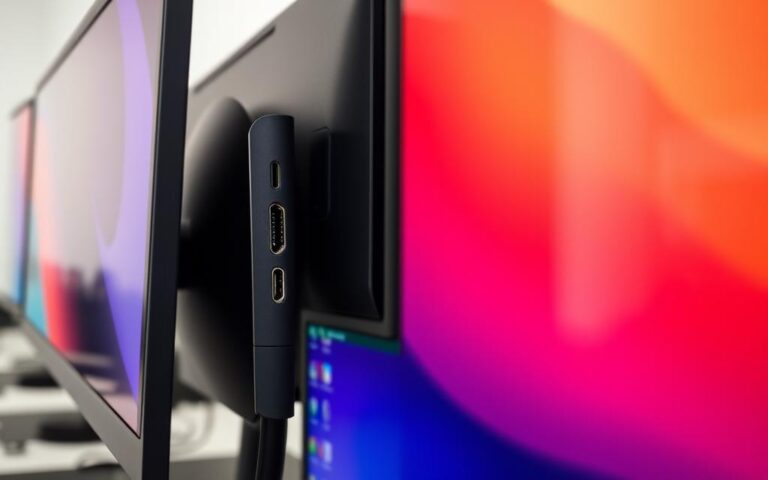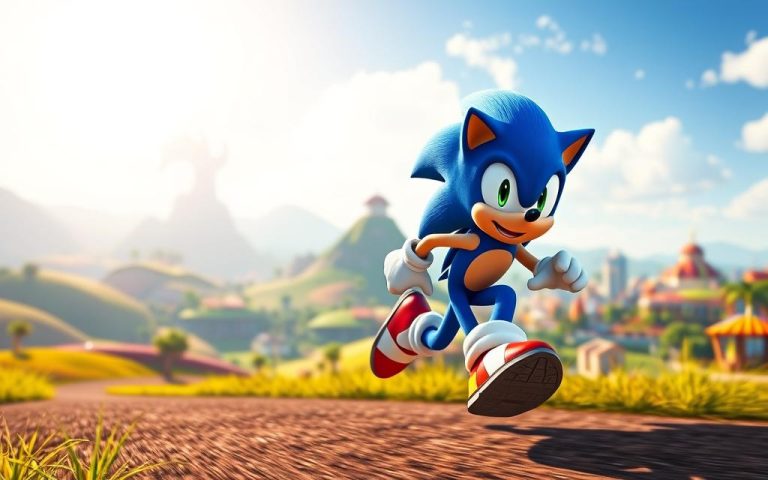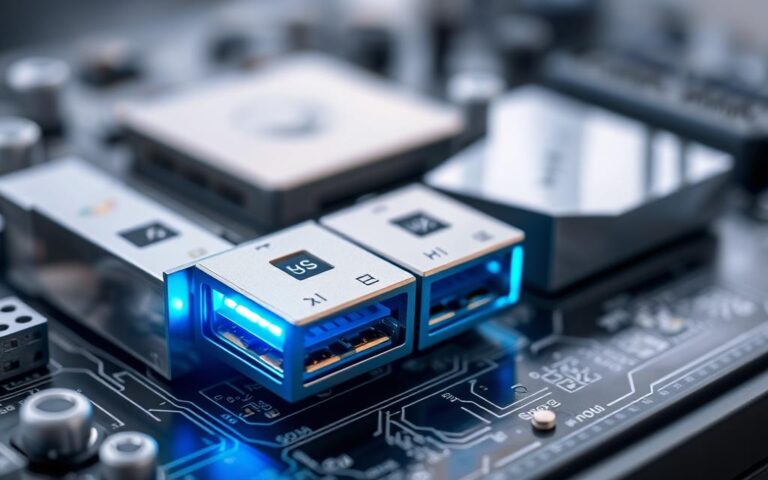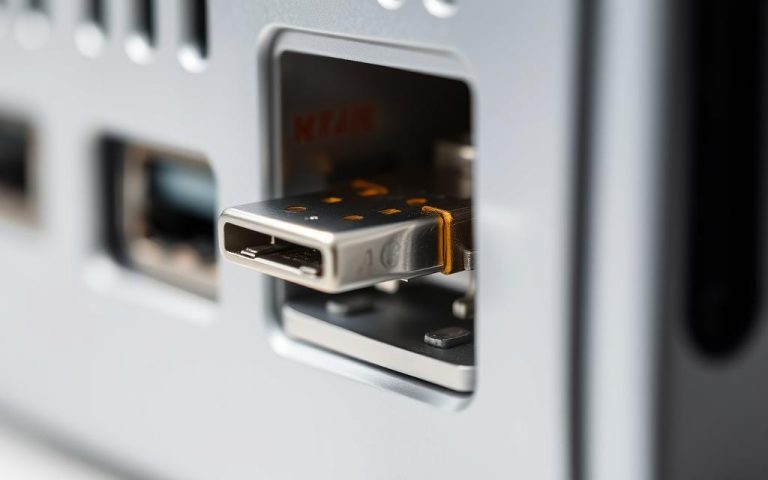PC Ports 101: Understanding Their Role in Modern Gaming
The term ‘port‘ has a dual meaning in the gaming world. It refers to both physical hardware connections on a computer and the process of adapting a game to run on different platforms.
In the context of hardware, PC ports enable peripherals to be connected, enhancing the gaming experience. On the other hand, when a game is ported to another platform, it allows gamers to enjoy their favourite titles across different devices, including Windows PCs and various console systems.
As games continue to evolve, understanding the role of ports becomes increasingly important for gamers. The ability to play a game on multiple platforms has become a significant aspect of modern gaming, with many titles being released on several platforms simultaneously.
This article will explore the significance of PC ports in both hardware and software contexts, discussing their evolution, their impact on the gaming industry, and how they have contributed to the preservation and enhancement of classic games.
What Are PC Ports? Understanding the Dual Meaning
The term ‘PC ports’ is multifaceted, referring to both physical connections on a computer and the process of adapting games for different platforms.
To delve deeper, we need to explore both aspects. First, let’s examine the hardware side of PC ports, which are crucial for connecting various peripherals and accessories.
Hardware Ports: The Physical Connections
Hardware ports on a PC are essential for gaming, as they allow for the connection of controllers, graphics cards, and other peripherals. Common hardware ports include USB ports, HDMI, DisplayPort, and Ethernet ports.
The quality and variety of hardware ports can significantly impact the gaming experience. For instance, a high-quality USB port can ensure that a gaming controller functions optimally, while a fast Ethernet port can provide a stable and fast internet connection, crucial for online gaming.
Software Ports: Games Across Platforms
On the software side, a port refers to the process of adapting a game from one platform, typically a console like PlayStation or Xbox, to another, usually PC. This process involves significant technical challenges, including adapting the game to run on different hardware architectures and operating systems.
The history of game ports is extensive, from early arcade-to-home-computer conversions to modern console-to-PC adaptations. The relationship between console manufacturers and PC gaming has evolved, with different approaches taken by Xbox and PlayStation regarding PC ports.
Business considerations play a crucial role in porting decisions, including expanding the player base and extending a game’s commercial lifespan. Software ports often come with enhancements that take advantage of PC hardware capabilities, improving graphics, performance, and overall gaming experience.
The quality of ports can vary widely, from basic conversions to comprehensive remasters with additional features. Understanding these aspects is key to appreciating the complexity and value of PC ports in gaming.
The Evolution of PC Ports in Gaming History
PC ports have played a crucial role in shaping the gaming landscape, from humble beginnings to the current multi-platform releases. The history of PC ports is closely tied to the evolution of the gaming industry, reflecting changes in technology, consumer preferences, and business strategies.
Early Days: From Arcade to Home Computer
In the early days of gaming, arcade machines were the primary platform for video games. As home computers became more prevalent, games began to be ported from arcades to these new platforms. The transition was not straightforward; games had to be adapted to the limitations of home hardware, often resulting in simplified versions or “ports” of the original arcade experience.
The introduction of the IBM PC and compatibles in the early 1980s marked a significant turning point. These systems offered a more standardized platform compared to the diverse range of home computers, making it easier for developers to port games. However, the technical capabilities of early PCs varied widely, affecting how games were optimized and released.
The Console-to-PC Pipeline
The 1990s saw the rise of console gaming with systems like the PlayStation and Nintendo 64. Many popular console games were subsequently ported to PC, often with enhanced graphics and performance. This period established the console-to-PC pipeline, where successful console titles were adapted for the PC market.
One of the significant challenges during this era was the variability in PC hardware. Unlike consoles, which have fixed specifications, PCs could range from high-end gaming rigs to basic office machines. This variability made optimizing games for PC a complex task, often resulting in a range of performance issues across different hardware configurations.
Modern Era: Simultaneous Releases and Exclusivity Deals
In recent years, the gaming industry has seen a shift towards simultaneous multi-platform releases. Microsoft’s Xbox Game Studios now typically release their games on both Xbox and Windows simultaneously, leveraging the Microsoft ecosystem to provide a unified gaming experience across platforms.
Sony has also evolved its strategy, releasing some PlayStation exclusives on PC after a period of console exclusivity. This change reflects a broader recognition of the PC gaming market’s importance and the potential for additional revenue through expanded release strategies.
| Platform | Release Strategy | Examples |
|---|---|---|
| Xbox | Simultaneous release with Windows | Microsoft’s Xbox Game Studios titles |
| PlayStation | Timed exclusivity, later released on PC | Horizon Zero Dawn, God of War |
| PC (via Epic Games Store) | Exclusive releases to compete with Steam | Various titles secured through exclusivity deals |
The business reasoning behind timed exclusivity is multifaceted. It benefits platform holders by attracting users to their ecosystem with exclusive content, while publishers gain from the increased visibility and revenue potential. Third-party exclusivity deals also play a significant role, impacting the PC porting landscape by determining which titles are available on PC and when.
The rise of cloud gaming services like Xbox Cloud Gaming is further blurring the lines between console and PC gaming, allowing for more flexible gaming experiences across different devices.
The Technical Process of Porting Games to PC
PC ports demand a meticulous approach to ensure a seamless gaming experience. The process involves several key steps that developers must follow to ensure that the game runs smoothly on a variety of hardware configurations.
Engine Compatibility and Optimization
The first step in porting a game to PC is to ensure engine compatibility. This involves modifying the game engine to work with PC hardware, which can be a complex task. Developers must optimize the engine to handle the diverse range of PC hardware configurations, from high-end gaming rigs to budget-friendly systems.
To achieve this, developers often use various optimization techniques, such as reducing graphics quality or disabling certain features on lower-end hardware. This ensures that the game runs at an acceptable frame rate, even on systems that are not equipped with the latest hardware.
Input Method Considerations
Another crucial aspect of porting games to PC is ensuring that the game is compatible with various input methods. This includes support for keyboard and mouse, as well as gamepads. Developers must test the game with different input devices to ensure that the controls are responsive and intuitive.
Developers often need to adjust the control schemes to accommodate different input methods. For example, a game designed for console controllers may require significant changes to support keyboard and mouse controls.
Graphics and Performance Scaling
Graphics and performance scaling are critical components of the porting process. Developers must ensure that the game runs smoothly on a range of hardware configurations, from low-end systems to high-end gaming PCs.
To achieve this, developers use various techniques, such as dynamic resolution scaling, level of detail adjustments, and graphics quality settings. These techniques allow the game to adapt to the available hardware, ensuring a smooth gaming experience.
Quality Assurance Challenges
Quality assurance is a significant challenge when porting games to PC. The diverse range of PC hardware configurations, operating systems, and driver versions creates a complex testing environment.
- Testing across different hardware configurations, including various graphics cards, processors, and RAM configurations.
- Ensuring compatibility with different operating systems, such as Windows 10 and Windows 11.
- Verifying that the game works correctly with different driver versions.
Common bugs and issues that arise during PC port development include crashes, graphics glitches, and performance issues. To address these problems, developers often rely on beta testing and early access programs to identify and fix issues before the game’s official release.
Post-launch patches have become a standard practice for addressing PC port issues. Community feedback plays a crucial role in shaping the quality assurance process, as developers rely on player reports to identify and fix problems.
Why PC Ports Matter in the Gaming Ecosystem
The impact of PC ports on the gaming ecosystem is multifaceted, influencing various aspects from revenue generation to community engagement. By making games available on PC, developers can tap into a vast and diverse market, thereby expanding their player base and revenue potential.
Expanding Player Base and Revenue
PC ports enable game developers to reach a broader audience, including players who prefer the PC gaming experience over console gaming. This expanded reach can lead to increased revenue through game sales, in-game purchases, and subscriptions. Moreover, PC ports often include additional content, such as downloadable content (DLC) and bonus levels, which can further boost revenue.
A notable example of a successful PC port is the game “Skyrim,” which has sold millions of copies on PC and has a thriving modding community. The game’s success on PC has contributed significantly to its overall revenue and has helped to establish it as a modern classic.
| Game Title | PC Sales | Total Revenue |
|---|---|---|
| Skyrim | 30 million+ | $450 million+ |
| Grand Theft Auto V | 20 million+ | $6 billion+ |
Preservation of Gaming History
PC ports also play a crucial role in preserving gaming history. By making classic games available on modern PC hardware, developers can ensure that these games remain accessible to new generations of gamers. This helps to preserve the cultural heritage of the gaming industry and allows players to experience the evolution of game design and technology.
For instance, the PC port of “Final Fantasy VII” has made this classic game available to a new audience, introducing them to the game’s engaging story and characters. The game’s preservation on PC has also enabled the creation of mods and fan content, further enriching the gaming experience.
Modding Communities and Extended Lifespans
One of the most significant benefits of PC ports is the creation of modding communities. Mods can dramatically extend a game’s lifespan by providing new content, improving gameplay, and fixing issues. Modding communities can also transform and enhance the original game experience, offering players a fresh and exciting way to engage with their favorite games.
For example, the modding community for “Skyrim” has created thousands of mods, ranging from simple tweaks to complete overhauls of the game’s mechanics and graphics. These mods have not only extended the game’s lifespan but have also attracted new players and reinvigorated the community.
In conclusion, PC ports are a vital component of the gaming ecosystem, offering numerous benefits that enhance the overall gaming experience. By expanding the player base and revenue, preserving gaming history, and enabling modding communities, PC ports play a crucial role in the success and longevity of games.
10 Exemplary PC Ports That Set the Standard
The world of PC gaming has been revolutionised by numerous exceptional ports that have raised the bar for quality and performance. These ports have not only brought beloved games to a wider audience but have also demonstrated how to successfully adapt console titles for PC.
Horizon Zero Dawn: From Rocky Start to Polished Experience
Horizon Zero Dawn’s PC port initially faced some challenges but was eventually polished to a high standard. The game’s post-apocalyptic world and engaging narrative were well-received by PC gamers.

Death Stranding: Better with Mouse and Keyboard
Death Stranding’s PC port showcased the game’s versatility, offering an enhanced experience with mouse and keyboard controls. This adaptation highlighted the potential for PC ports to improve upon console versions.
Image of Death Stranding on PC
God of War: PlayStation Exclusive Goes PC
The God of War PC port marked a significant milestone for the franchise, bringing its intense action and Norse mythology to a new audience. The port maintained the game’s high-quality visuals and gameplay.
Image of God of War on PC
Marvel’s Spider-Man: Web-Slinging on Windows
Marvel’s Spider-Man PC port delighted fans with its faithful adaptation of the console version, complete with web-slinging mechanics that translated well to PC controls.
Image of Marvel’s Spider-Man on PC
Persona5 Royal: JRPG Excellence on PC
Persona5 Royal’s PC port brought one of the most acclaimed JRPGs to a new audience, maintaining its stylish presentation and engaging turn-based combat. The port included all DLC content, ensuring that PC players had access to the complete experience.
The game’s success on PC has influenced Atlus’s strategy for bringing more of their titles to the platform, introducing new players to the Persona franchise. The PC community has enthusiastically embraced this formerly PlayStation-exclusive JRPG, demonstrating the potential for PC ports to expand a game’s reach and popularity.
Image of Persona5 Royal on PC
5 Notorious PC Ports That Failed to Deliver
The world of PC gaming is marred by ports that fail to deliver on their promise. Despite the advancements in gaming technology, the transition of games from one platform to another, especially to PC, has not always been smooth. Some ports have become notorious for their poor quality and frustrating gameplay experiences.
Batman: Arkham Knight’s Disastrous Launch
Batman: Arkham Knight, a game that was highly anticipated on PC, turned out to be a disaster at launch due to numerous technical issues. The game’s poor port was criticized for its glitches, poor optimization, and unplayable frame rates on most hardware configurations.
The issues were so severe that they led to a significant backlash from the gaming community, resulting in refunds and a damaged reputation for the game’s publisher, Warner Bros. Interactive Entertainment.
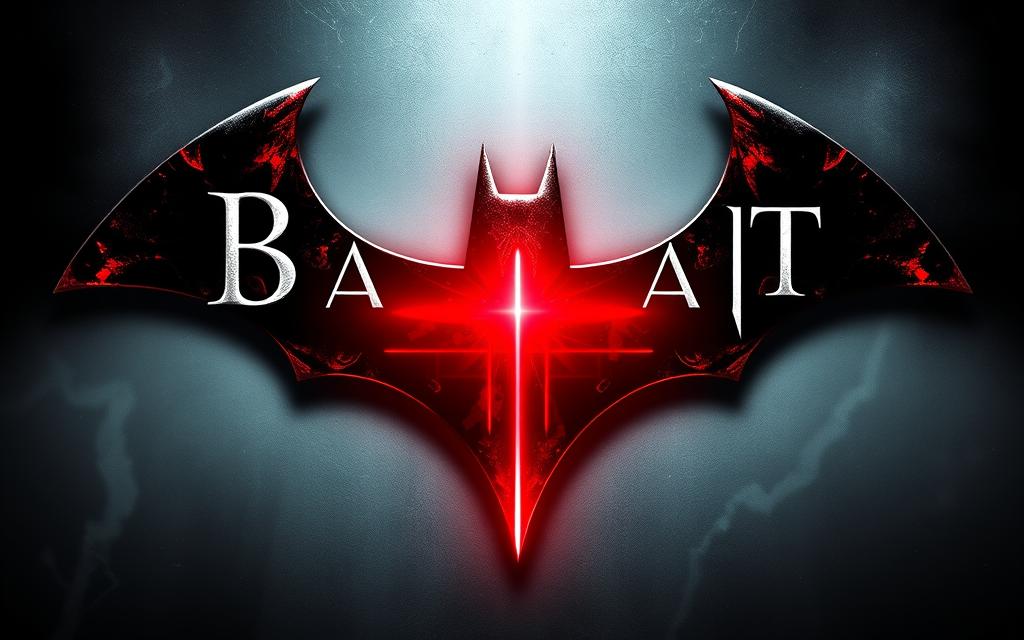
Saints Row 2: The Port That Never Got Fixed
Saints Row 2, an open-world action-adventure game, suffered from a poorly executed PC port. The game was plagued by bugs, crashes, and poor performance, which were never fully addressed by the developers.
This lack of support and testing led to a negative perception of the game’s PC version, affecting its overall sales and player satisfaction.
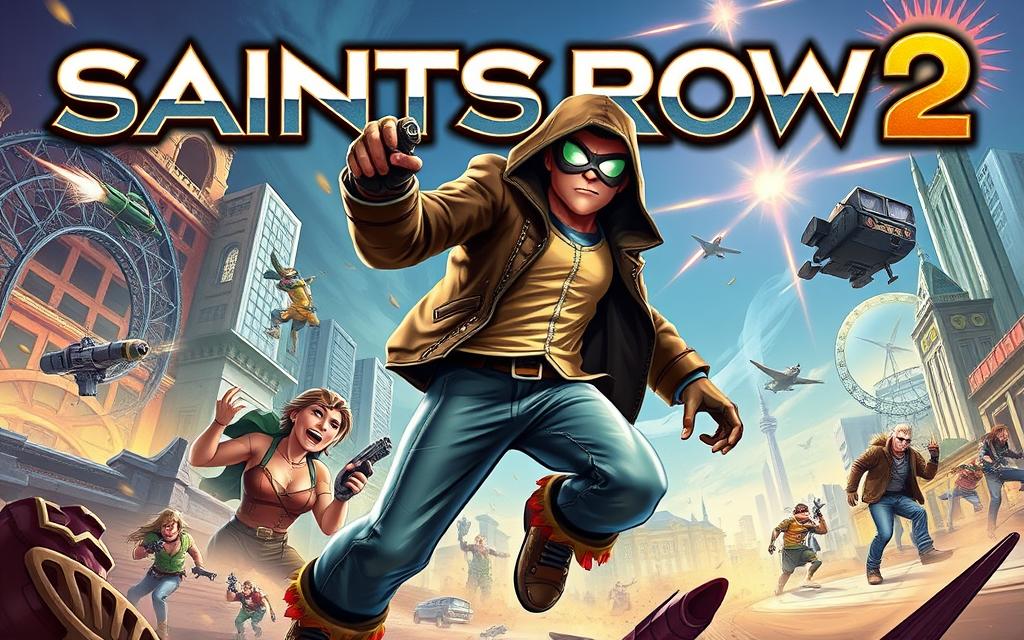
Dark Souls: Prepare to Die (of Poor Optimization)
Dark Souls: Prepare to Die Edition, while critically acclaimed, was marred by a subpar PC port. The game’s transition to PC was criticized for its lack of proper optimization, leading to performance issues.
Despite subsequent patches, the initial release was marred by problems, highlighting the importance of adequate testing and optimization in game development.
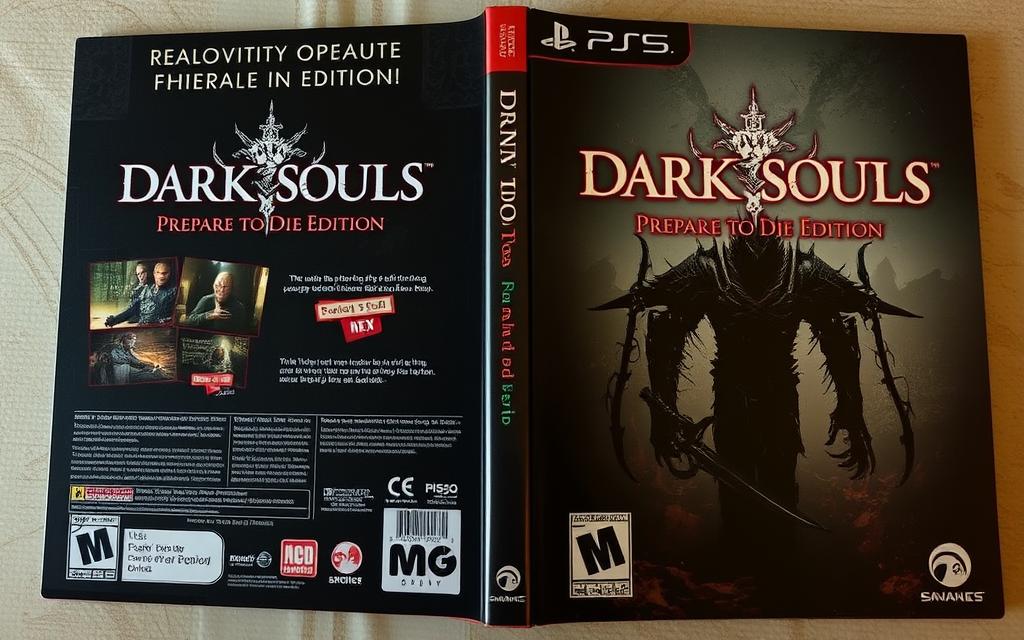
Lessons Learned from Failed Ports
The failure of these PC ports has taught the gaming industry valuable lessons. It has become clear that rushed development, outsourced porting, and insufficient testing are common factors that contribute to a port’s failure.
The industry has evolved, with many publishers now prioritizing quality PC versions, investing in better testing, and ensuring that their games are optimized for a variety of hardware configurations.
As a result, consumer expectations have risen, demanding more than just a bare-minimum conversion. The dynamics of releasing and fixing problematic ports have also changed with the advent of digital distribution and post-launch patching.
The Business of PC Ports
As the gaming landscape continues to evolve, the business of PC ports plays an increasingly important role. The way games are ported to PC has significant financial implications for both game developers and publishers.
Exclusivity Deals and Timed Releases
Exclusivity is a key strategy in the gaming industry, with console manufacturers relying on exclusive titles to attract players. In the PC gaming space, exclusivity deals have become a point of contention, particularly with the rise of the Epic Games Store as a competitor to Steam.
Epic’s strategy of securing timed exclusivity for PC ports has challenged Steam’s dominance. By offering more favourable revenue-sharing models, Epic has attracted several high-profile titles, making exclusivity a critical factor in the PC gaming market.
- Timed exclusivity can provide a significant boost to a game’s visibility and sales.
- Developers and publishers must weigh the benefits of exclusivity against the potential loss of sales on other platforms.
- The competition between Epic Games Store and Steam has led to better deals for developers and publishers.
Development Costs vs. Return on Investment
Porting a game to PC involves significant development costs, including optimization, bug fixing, and ensuring compatibility with various hardware configurations. The return on investment (ROI) for PC ports can be substantial, but it depends on various factors, including the game’s popularity and marketing efforts.
Developers must carefully consider the costs and potential revenue when deciding to port a game to PC. The revenue-sharing models of distribution platforms like Steam and Epic Games Store also play a crucial role in determining the profitability of PC ports.
| Platform | Revenue Share |
|---|---|
| Steam | 70/30 |
| Epic Games Store | 88/12 |
The Epic Games Store vs. Steam Competition
The competition between Epic Games Store and Steam has reshaped the PC gaming landscape. Epic’s more favourable revenue-sharing model has attracted developers and publishers, challenging Steam’s long-standing dominance.
This competition has resulted in better deals for developers and publishers, ultimately benefiting gamers. The impact of this competition on the timing and marketing of PC ports has also been significant, with developers now having more options and potentially more resources to devote to their PC releases.

The future of PC ports will likely be influenced by the ongoing competition between distribution platforms. As the market continues to evolve, consumers can expect more innovative approaches to game distribution and potentially more exclusive titles.
PC Ports and Their Impact on Game Design
As the gaming landscape evolves, the impact of PC ports on game design has become increasingly significant, introducing new possibilities and challenges. The process of adapting games for PC requires careful consideration of various factors that can enhance or alter the gaming experience.
User Interface Adaptations
One of the critical aspects of game design affected by PC ports is the user interface (UI). Unlike consoles, PCs offer a wide range of display resolutions and aspect ratios, necessitating UI elements that are adaptable and scalable. A well-designed UI for PC ports ensures that players can easily navigate menus, read text, and access important information without strain, regardless of their screen settings.
Developers often need to rework UI elements to accommodate different screen sizes and resolutions. For instance, a game designed for a console might have a fixed resolution, but on PC, it needs to be flexible to cater to various monitor configurations, including ultrawide screens. This adaptability not only enhances the player experience but also requires careful planning and execution in the game design phase.
Control Schemes: Gamepad vs. Keyboard/Mouse
The control scheme is another crucial aspect influenced by PC ports. While console gamers typically use gamepads, PC gamers often prefer keyboard and mouse setups for certain genres, such as first-person shooters and strategy games. This difference necessitates game design that accommodates multiple control schemes, ensuring that the game is enjoyable and playable regardless of the input method.
For example, games like Death Stranding have shown that with proper design and optimization, the keyboard and mouse can offer a superior experience to the gamepad, enhancing gameplay through more precise controls. This flexibility in control schemes allows developers to cater to a broader audience, making their games more accessible and enjoyable.
Visual Fidelity and Performance Options
PC ports also significantly impact the visual fidelity and performance of games. PCs vary widely in their hardware specifications, from high-end gaming rigs to budget-friendly options. As such, game designers must incorporate a range of graphics settings to accommodate different hardware configurations, ensuring that the game runs smoothly across various PCs.
Options such as resolution scaling, texture quality, shadow quality, and anti-aliasing allow players to customize their visual experience. For instance, a player with a high-end GPU can enable advanced graphics features, while someone with a lower-end GPU can adjust the settings to achieve a playable frame rate. This scalability is a hallmark of well-designed PC ports, enhancing both visual fidelity and performance.
| Graphics Setting | Impact on Visual Fidelity | Impact on Performance |
|---|---|---|
| Resolution Scaling | Increases detail and clarity | Can significantly impact frame rate if set too high |
| Texture Quality | Enhances surface detail and realism | Higher quality textures require more GPU memory and power |
| Shadow Quality | Improves lighting realism and depth | Complex shadow calculations can be GPU-intensive |
| Anti-Aliasing | Reduces jagged edges, improving overall image smoothness | Some anti-aliasing techniques can be computationally expensive |
As highlighted by the table, the balance between visual fidelity and performance is crucial. Game designers must consider these factors when developing PC ports to ensure an optimal gaming experience across a range of hardware configurations.
“The key to a successful PC port lies in its ability to scale visual and performance options, catering to both high-end and budget PCs.”
By incorporating flexible graphics options and ensuring that the game can adapt to different PC specifications, developers can create a more inclusive and enjoyable gaming experience. The impact of PC ports on game design is thus profound, driving innovation and enhancing gameplay across various platforms.
Remastered PC Ports: Breathing New Life into Classics
The world of PC gaming has been revolutionised by remastered ports, giving classic games a new lease on life. These remastered versions not only update the visuals and performance of aged games but also often include additional content, making them appealing to both nostalgic players and new audiences.
The Master Chief Collection: Halo Comes Home
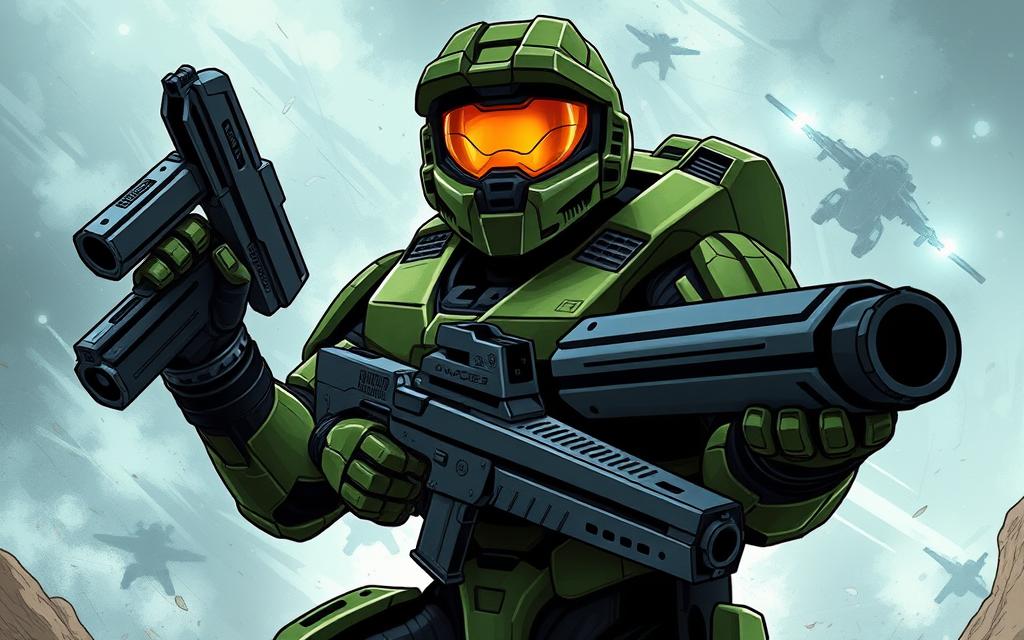
The Master Chief Collection is a prime example of a successful remastered PC port. Initially released on Xbox, this compilation of Halo games was later brought to PC, offering fans a chance to experience the iconic first-person shooter series with enhanced graphics and smoother gameplay. The collection includes Halo: Reach, Halo: Combat Evolved Anniversary, Halo 2: Anniversary, Halo 3, Halo 3: ODST, and Halo 4, providing a comprehensive Halo experience.
The PC version of The Master Chief Collection was highly anticipated, and its release was met with positive reviews. Players praised the improved visuals, the inclusion of the original Halo games, and the robust online features. The success of this port demonstrates the potential for remastered games to attract both veteran players and newcomers.
Final Fantasy Series on PC

The Final Fantasy series has seen numerous remastered PC ports over the years, with various titles being re-released with enhanced graphics and new content. Games like Final Fantasy VII, Final Fantasy VIII, and Final Fantasy X/X-2 HD Remastered have been made available on PC, allowing players to enjoy these RPG classics with updated visuals and often additional features.
These remastered ports have been well-received, with many players appreciating the chance to relive their favourite Final Fantasy experiences with modern polish. The inclusion of new content, such as additional storylines or characters, has also been a welcome addition for fans.
Resident Evil 4: From GameCube to Modern PCs

Resident Evil 4 is a landmark game that has undergone several transformations since its initial release on the Nintendo GameCube. The game’s journey from a console exclusive to a multi-platform phenomenon is a testament to its enduring appeal. The 2007 PC port of Resident Evil 4 was a significant milestone, bringing the game to a wider audience.
The initial PC port, however, was not without its issues. Players reported various technical problems, which were later addressed through patches. Despite these challenges, the game’s popularity justified further re-releases, including an HD edition that improved upon the original port’s shortcomings. The eventual release of a remake in 2023 marked the culmination of Resident Evil 4’s porting journey, offering a definitive version across all platforms.
The evolution of Resident Evil 4 on PC highlights the importance of remastered ports in maintaining a game’s relevance. Community mods, such as the “HD Project,” played a significant role in enhancing the game before official remasters were released. Capcom’s approach to PC porting has evolved significantly, with each successive version adding features and improving technical performance.
Console Exclusives That PC Gamers Are Waiting For
PC gamers have been patiently waiting for their chance to play some of the most highly anticipated console exclusives, and that wait is soon to be over. The gaming industry is witnessing a significant shift, with console exclusives making their way to PC. This change is largely driven by the evolving business models of major console manufacturers, particularly Microsoft.
PlayStation Titles on the Horizon
PlayStation fans are eagerly awaiting the release of several high-profile titles on PC. Games like Horizon Zero Dawn and God of War have already made the transition, and more are expected to follow. The success of these ports has shown that there is a significant market for PlayStation exclusives on PC.
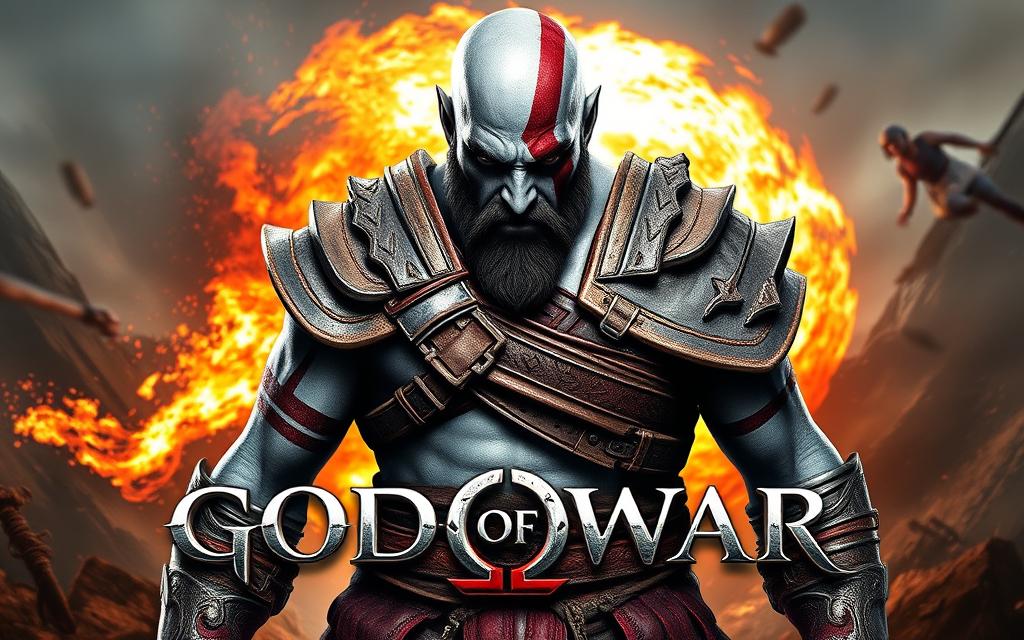
Nintendo’s Stance on PC Ports
Nintendo has traditionally been cautious about releasing its exclusives on PC. However, there are signs that this stance might be softening. The release of Super Mario 3D All-Stars and other titles on various platforms suggests a potential openness to PC releases in the future.
Xbox Game Pass and the Future of Platform Exclusivity
Xbox Game Pass has revolutionised Microsoft’s approach to platform exclusivity. By offering simultaneous releases on Xbox and Windows through the Xbox app and Game Pass, Microsoft has created a unified ecosystem. This strategy benefits PC gamers by providing day-one access to formerly Xbox-exclusive titles.
Cloud gaming through Game Pass further blurs the lines between console and PC gaming, representing a fundamental shift in thinking about platforms and exclusivity. This approach may influence Sony and Nintendo’s strategies regarding PC gaming in the future.
The long-term implications of this strategy for platform exclusivity are significant. As the gaming industry continues to evolve, the concept of exclusivity may need to be redefined. Xbox Game Pass has shown that by embracing a more inclusive model, Microsoft can attract a broader audience and increase its market share.
How to Identify a Quality PC Port Before Purchase
Evaluating PC ports before purchase can help gamers avoid common pitfalls associated with poorly optimized games. With the gaming industry’s shift towards multi-platform releases, understanding what makes a good PC port has become increasingly important for gamers looking to maximize their gaming experience.
Technical Requirements and Benchmarks
One of the first steps in identifying a quality PC port is to examine its technical requirements and benchmarks. A well-optimized port should have clearly defined system requirements that match the game’s graphical and performance demands. Gamers should look for specific details such as:
- Operating System: Windows 10 or later
- Processor: Intel Core i5 or AMD equivalent
- Memory: 16 GB RAM
- Graphics: NVIDIA GeForce GTX 1660 or AMD Radeon RX 5600 XT
- Storage: 50 GB available space
Benchmarks are also crucial as they provide a real-world performance test of the game on various hardware configurations. Websites like Digital Foundry and TechPowerUp offer detailed benchmark analyses that can help gamers understand how a game performs on different hardware.
| Hardware Configuration | Resolution | Frame Rate |
|---|---|---|
| NVIDIA GeForce RTX 3080 | 4K (3840 x 2160) | 60 FPS |
| AMD Radeon RX 6800 XT | 1440p (2560 x 1440) | 100 FPS |
| Intel Iris Xe Graphics | 1080p (1920 x 1080) | 30 FPS |
Port Developer Reputation
The reputation of the port developer is another critical factor. Some developers have a history of delivering high-quality ports, while others have been known to release subpar versions. Researching the developer’s past work can provide insights into what to expect. For instance, developers like Nixxes Software have a reputation for optimizing PC ports effectively.
Community Reviews and Technical Analysis
Community reviews and technical analyses are invaluable resources for understanding a PC port’s quality. Websites like Steam and ResetEra have active communities that discuss and review PC games, often providing detailed insights into their performance and optimization. Technical analysis websites, as mentioned earlier, offer in-depth examinations of a game’s performance on various hardware configurations.
Red Flags to Watch For
There are several red flags that gamers should be aware of when evaluating a PC port. These include:
- Limited preview access or no PC footage in pre-release marketing
- Vague system requirements that lack specific details
- No pre-release review codes for PC versions or review embargoes that lift after release
- Technical issues such as locked frame rates, limited resolution options, or missing graphics settings
- Delayed PC releases without clear explanations, which can indicate porting challenges
Being aware of these red flags can help gamers make informed decisions about whether to purchase a PC port immediately or wait for potential patches to address reported issues.
Optimizing Your PC for the Best Port Experience
To get the most out of PC ports, it’s essential to optimize your computer’s hardware and software. A well-optimized PC can significantly enhance your gaming experience, providing smoother gameplay and better graphics.
Hardware Recommendations for Modern Ports
For modern PC ports, having the right hardware is crucial. A high-performance graphics card, such as those from NVIDIA or AMD, is essential for running demanding games at high resolutions. Additionally, a fast processor and sufficient RAM (at least 16GB) are necessary to handle the game’s computational tasks and memory requirements.
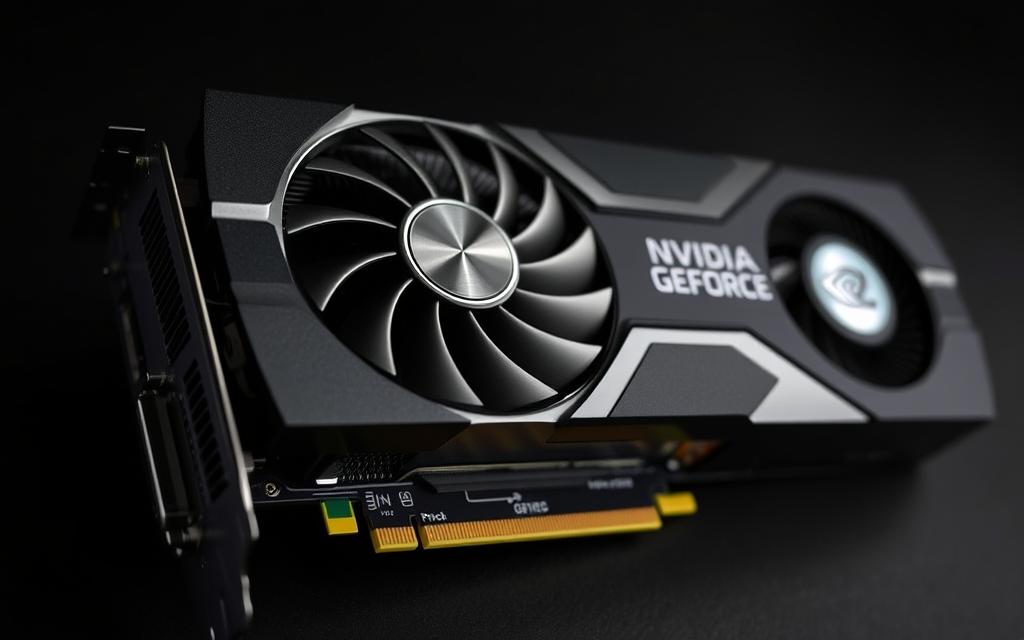
When choosing hardware, consider the specifications recommended by the game developers. Upgrading your hardware to meet or exceed these recommendations can significantly improve your gaming experience.
Essential Software Tools for Troubleshooting
Besides hardware, having the right software tools is vital for troubleshooting PC ports. Drivers for your graphics card and other components should be kept up to date to ensure compatibility and performance. Debugging tools can also help identify and resolve issues that may arise during gameplay.
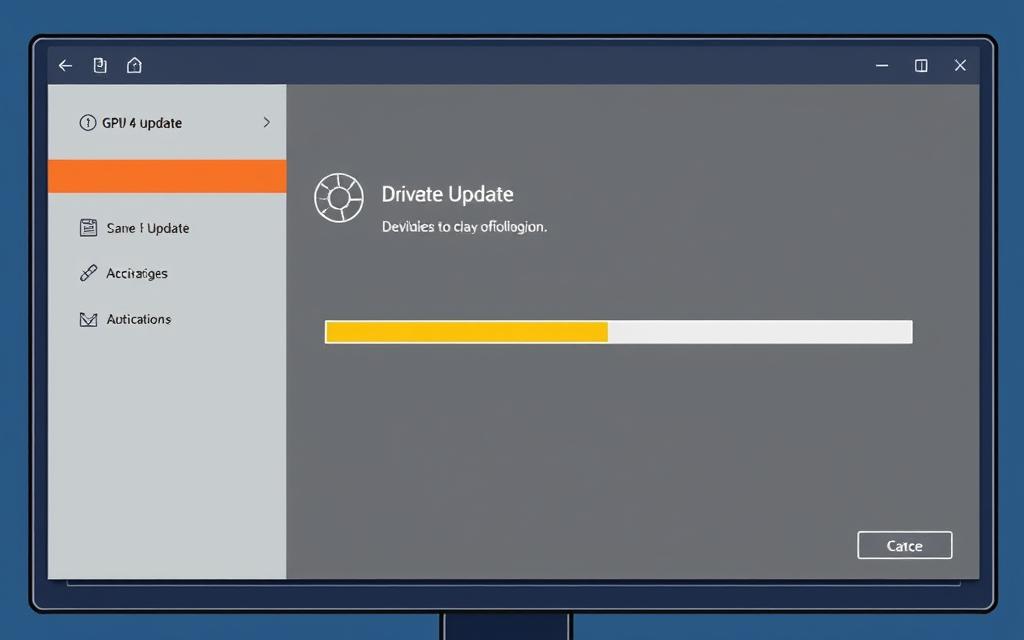
Utilizing software tools like GPU-Z for graphics card information and FRAPS for frame rate monitoring can help diagnose performance issues. Keeping your operating system and games updated is also crucial for optimal performance.
Community Patches and Mods
Community patches and mods can significantly enhance the experience of playing PC ports. Projects like DSFix for Dark Souls have shown how community efforts can resolve major issues and even add new features to games.
To safely find and install community patches, players can rely on reputable sources like Nexus Mods and GitHub. It’s essential to be cautious and only download patches from trusted sources to avoid potential risks associated with unofficial modifications.
Community patches can address a variety of issues, from technical fixes to quality-of-life improvements. Some developers have even incorporated community fixes into official patches, demonstrating the value of community contributions.
The Future of PC Ports in Gaming
The evolution of PC ports is being driven by the convergence of console and PC architectures. As modern consoles increasingly adopt PC-like hardware components, the process of porting games between platforms is becoming more streamlined.
Cross-Platform Play and Progression
One of the significant advancements in the future of PC ports is the implementation of cross-platform play and progression. This feature allows gamers across different platforms to play together and share their progress, enhancing the overall gaming experience.
The development tools and engines are now being designed with cross-platform development in mind from the outset. This shift is expected to lead to more simultaneous releases across platforms and fewer delayed PC ports.
Cloud Gaming’s Impact on Traditional Ports
Cloud gaming is another factor that is poised to impact the traditional porting process. By allowing games to be played on various devices without the need for specific hardware, cloud gaming could potentially reduce the necessity for native ports.
However, the quality and performance of cloud gaming are still dependent on internet connectivity and server infrastructure. As such, traditional ports will likely continue to have their own value, especially for gamers with high-performance hardware.
Next-Gen Consoles and PC Convergence
The latest console generations, such as the PS5 and Xbox Series X/S, have adopted AMD CPU and GPU architectures that are similar to those found in gaming PCs. This convergence in hardware architecture is simplifying the porting process by reducing the differences between console and PC hardware.
Features like variable refresh rate and SSD storage, now common in both consoles and PCs, are further aligning the two platforms. This alignment is expected to improve the quality of future ports by minimizing the translation layers required between platforms.
While the convergence of console and PC hardware will simplify many aspects of porting, PC-specific features will continue to differentiate the gaming experience on PCs. The ability to customize hardware, use advanced peripherals, and access a wide range of software tools will remain unique to the PC platform.
Ultimately, the future of PC ports looks promising, with the potential for more consistent experiences across platforms. As the gaming industry continues to evolve, the lines between console and PC gaming will continue to blur, benefiting gamers on all platforms.
Conclusion: The Enduring Value of PC Ports
The art of porting games to PC has evolved significantly, enhancing the gaming experience and expanding the reach of popular titles. Throughout this article, we have explored the multifaceted role of PC ports in modern gaming, from their technical and business aspects to their impact on the gaming ecosystem.
PC ports serve multiple valuable functions, including the preservation of gaming history, enhancement of game experiences through mods, and introduction of beloved franchises to new audiences. The technical process of porting games involves engine compatibility, optimization, and input method considerations, all of which influence the quality of the final product.
The business side of PC ports is equally complex, with factors such as exclusivity deals, development costs, and return on investment affecting their availability and quality. Despite these challenges, the growing quality and frequency of PC ports have benefited the gaming industry as a whole, offering gamers a wider range of high-quality gaming experiences.
One of the key advantages of PC ports is their potential for mods, which can extend the lifespan and value of games. The modding community plays a crucial role in this aspect, creating custom content that enhances gameplay and graphics. Furthermore, PC ports often represent the definitive versions of games, with the highest performance potential and most features.
The attitude of platform holders towards PC ports has evolved over time, with many now recognizing the value of releasing games on multiple platforms. This shift has led to more console exclusives being ported to PC, revitalizing interest in gaming classics and introducing them to new audiences.
As the gaming landscape continues to evolve, with advancements in technology and changes in business models, PC ports are likely to remain an essential part of the industry. The future of PC ports looks promising, with cross-platform play and progression becoming increasingly important.
To ensure that PC ports continue to thrive, it is essential for gamers to support well-made ports, incentivizing publishers to invest in quality conversions. By doing so, gamers can enjoy a wider range of high-quality gaming experiences, while publishers can benefit from increased revenue and a broader audience.
In conclusion, PC ports have become an integral part of the gaming ecosystem, offering numerous benefits for both gamers and publishers. As the industry continues to evolve, it is likely that PC ports will remain a vital component, shaping the future of gaming and leaving a lasting legacy.
FAQ
What is the difference between a PC port and a console version of a game?
A PC port is a version of a game that has been adapted to run on a personal computer, whereas a console version is designed to run on a specific gaming console, such as a PlayStation or Xbox. PC ports often offer improved graphics, customisable controls, and mod support.
Are PC ports always better than console versions?
Not always, but PC ports can offer several advantages, including higher resolution, improved frame rates, and customisable graphics settings. However, some console versions may have exclusive features or a more streamlined gaming experience.
What are some examples of well-regarded PC ports?
Examples of well-regarded PC ports include The Master Chief Collection, Final Fantasy VII Remake, and Resident Evil 4. These ports have been praised for their improved graphics, smooth performance, and faithful translations of the original console experiences.
What is a remastered PC port, and how does it differ from a standard port?
A remastered PC port is a version of a game that has been re-released with updated graphics, sound, and sometimes new features. Remastered ports often use modern game engines and may include enhancements such as higher resolution textures, improved lighting, and new gameplay mechanics.
How can I identify a quality PC port before purchasing?
To identify a quality PC port, check the system requirements, read reviews from reputable sources, and look for feedback from the gaming community. Also, consider the reputation of the port developer and check for any red flags, such as poor optimisation or bugs.
Can I expect the same gaming experience on PC as on console?
While many PC ports aim to replicate the console experience, the actual gaming experience can vary depending on factors such as hardware, controls, and graphics settings. Some PC ports may offer additional features or modes not available on console.
Are there any benefits to playing a game on PC rather than console?
Yes, playing a game on PC can offer several benefits, including customisable controls, mod support, and often better graphics. Additionally, PC gamers can take advantage of features such as higher frame rates, higher resolution, and more detailed graphics.
How do I optimise my PC for the best port experience?
To optimise your PC for the best port experience, ensure your hardware meets the system requirements, update your graphics drivers, and adjust your graphics settings for optimal performance. You can also consider using community-created mods or patches to enhance the gaming experience.

